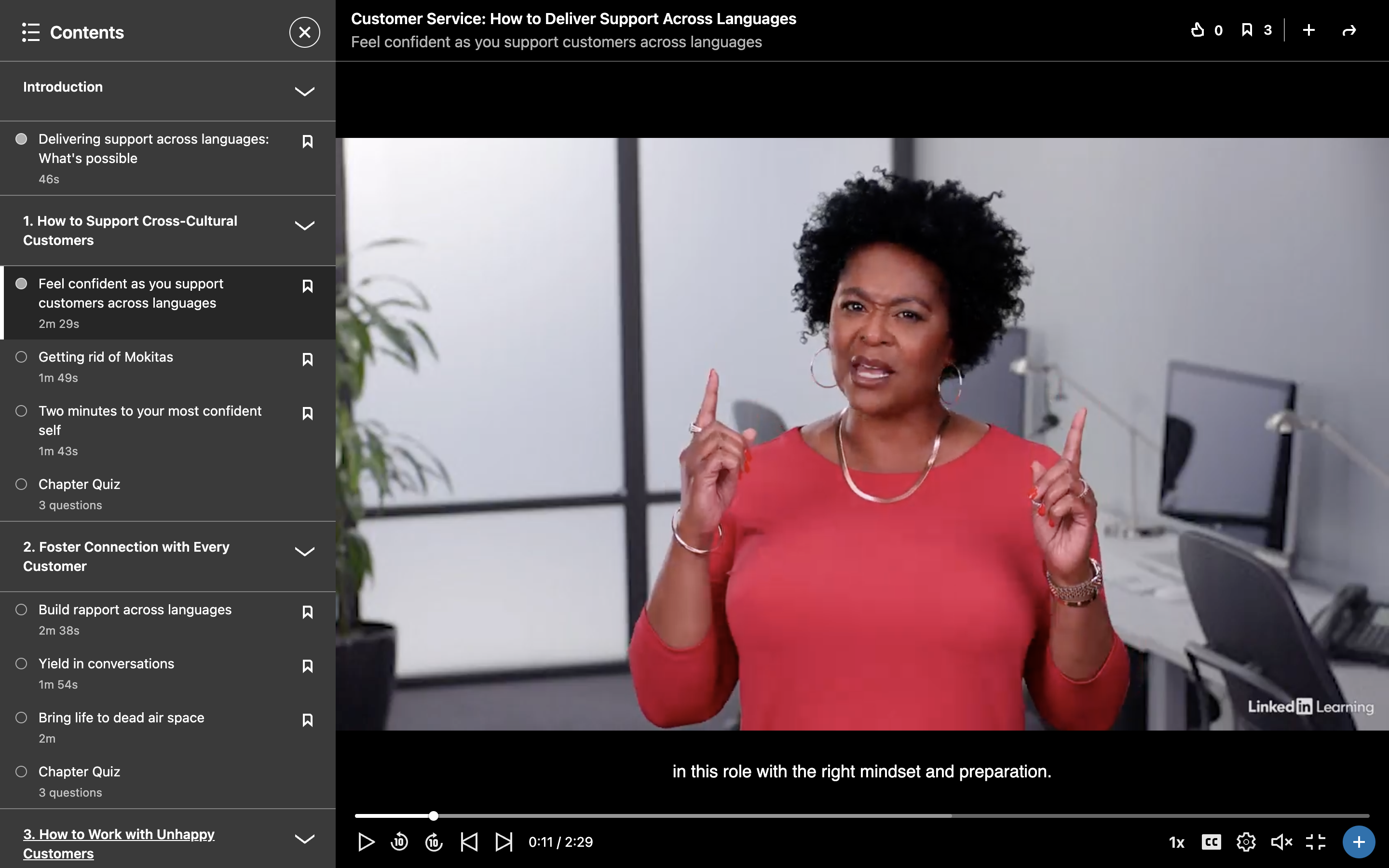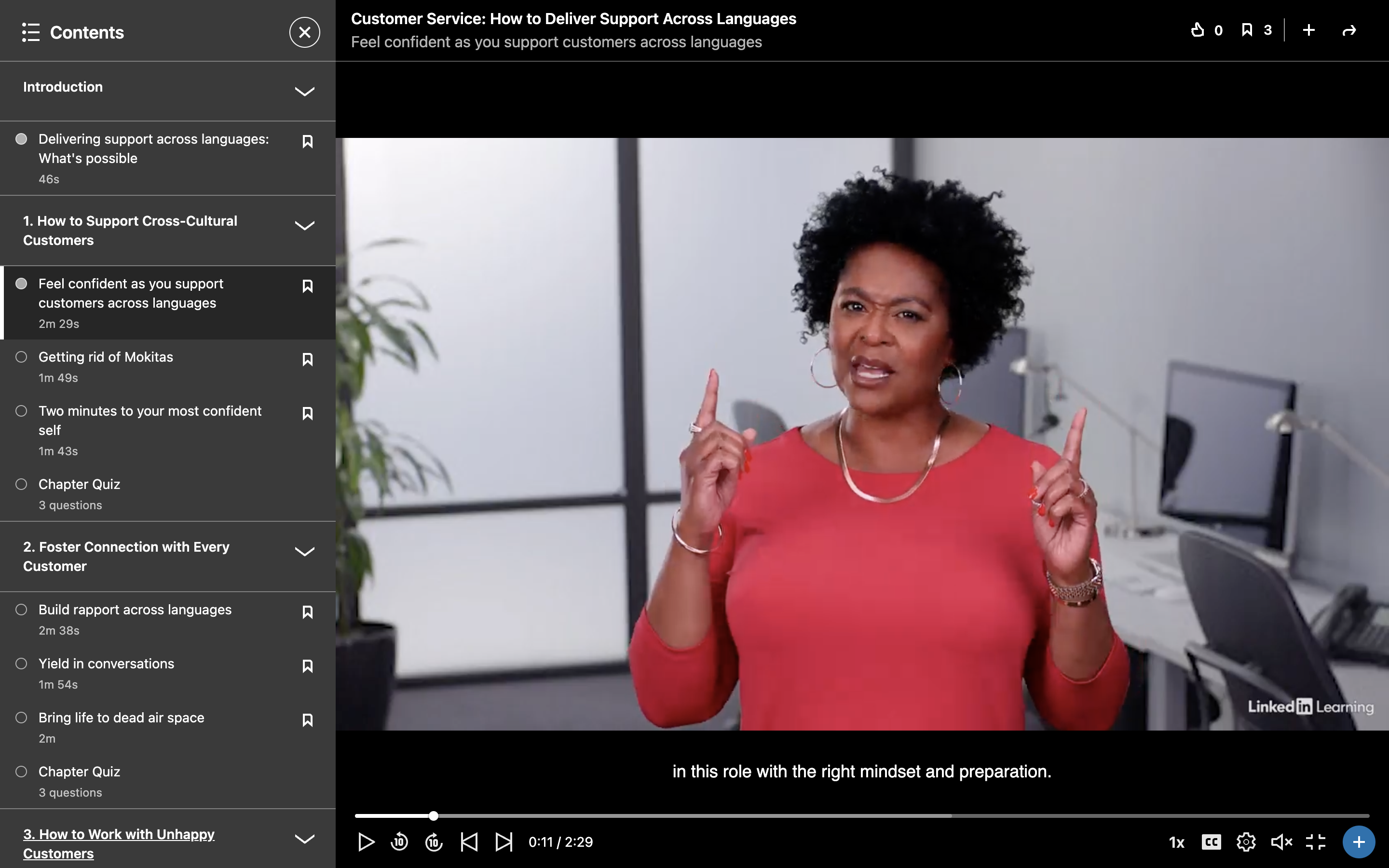Unlock Global Success: Effective Strategies for Providing Top-Notch Customer Support Across Languages

In our increasingly globalized world, businesses must cater to a diverse clientele to stay competitive. Providing excellent customer support across languages is more important than ever. As a customer service representative, your ability to effectively communicate with customers who speak different languages can make all the difference in providing a positive experience that leads to long-term loyalty.
It's essential to recognize that supporting customers in their native language goes beyond mere translation. It's about understanding cultural nuances, empathy, and genuinely connecting with people from different backgrounds. In this blog post, we will delve into the importance of multilingual customer support, discuss its challenges, and provide practical strategies for delivering top-notch customer support across languages.
Importance of multilingual customer support for global success
Multilingual customer support is no longer a luxury; it's a necessity. With the rapid growth of e-commerce and the increasing accessibility of global markets, businesses can reach customers worldwide. Offering support in their native language is a powerful way to create a lasting relationship with these customers and foster brand loyalty.
When customers feel understood and valued, they are likelier to continue doing business with a company. Research has shown that customers who receive support in their native language are more satisfied, less likely to churn, and more likely to make repeat purchases. Investing in multilingual customer support can significantly impact a company's bottom line.
Moreover, providing customer support across languages can set your company apart. As more businesses expand internationally, those prioritizing multilingual support will have a competitive edge. By breaking through language barriers, companies can demonstrate their commitment to inclusivity and customer satisfaction.
Challenges of providing customer support across languages
Despite its importance, delivering practical customer support across languages presents several challenges. These include linguistic barriers, cultural differences, and the need for specialized training.

For more help supporting global customers, check out my LinkedIn Learning Course:
Customer Service: How to Deliver Support Across Languages
Firstly, language barriers can lead to misunderstandings and miscommunications, frustrating the customer and the support agent. Overcoming these barriers requires fluency in the customer's language and a deep understanding of the product or service.
Cultural differences can also impact the success of multilingual customer support. Different cultures have unique expectations and norms regarding customer service, and failing to meet these expectations can result in dissatisfaction. To provide culturally sensitive support, agents must know the customers' customs and values.
Lastly, providing customer support across languages requires specialized training. Having agents proficient in multiple languages and understanding the company's products and services is helpful. This can be a significant investment in time and resources, but it's crucial for delivering top-notch support.
Developing an effective strategy for multilingual customer support
Companies must develop a well-thought-out strategy to overcome these challenges and provide exceptional customer support across languages. This includes hiring and training the right team, leveraging technology, and fostering a supportive work environment.
When building a multilingual support team, look for agents with strong language skills and a genuine passion for helping customers. In addition to language proficiency, consider candidates with excellent problem-solving, communication, and cultural awareness skills.
Next, invest in technology that can aid in providing multilingual support. This might include translation tools, customer relationship management (CRM) software with multilingual capabilities, or AI-powered chatbots that can handle simple queries in various languages. While technology should not replace human agents, it can be crucial in enhancing their efficiency and effectiveness.
Lastly, foster a supportive work environment that encourages continuous learning and growth. Provide ongoing training and development opportunities for your team, and encourage them to share their experiences and insights. Promoting a culture of collaboration and continuous improvement ensures that your multilingual support team remains at the top of their game.
Supporting Agents When English is Their Second Language
For many customer support agents, English is not their first language. This can sometimes lead to challenges in communication, mainly when customers are unfamiliar with an agent's accent. It's essential to provide support and resources to help non-native English speakers feel confident and capable in their roles.
One effective strategy is offering specialized language training tailored to customer support. This can help agents improve their English language skills while also learning industry-specific terminology and phrases. Additionally, encourage agents to practice their English regularly, both in and out of the workplace.
Another key element is empathy. Encourage your team to be understanding and patient with each other, regardless of language barriers. You can create a more cohesive and effective team by fostering a culture of inclusivity and support.
How to Feel Confident As You Support Customers Across Languages
Supporting customers in multiple languages can be daunting, but you can excel in this role with the right mindset and preparation. Here are some tips for feeling confident as you provide customer support across languages:
- Preparation is key. Ensure you have a strong understanding of the company's products and services and any common issues that customers may encounter. Familiarize yourself with specific terminology and phrases commonly used in customer support.
- Practice makes perfect. Regularly practice speaking and listening in the languages you support. The more comfortable you are with a language, the more confident you will feel when interacting with customers.
- Focus on empathy. Remember that excellent customer support is about understanding and addressing customer needs. You can connect with customers regardless of language barriers by being empathetic and genuinely caring.
- Ask for help when needed. If you're struggling with a particular language or issue, don't hesitate to seek assistance from colleagues or supervisors. Asking for help is a sign of strength, not weakness, demonstrating your commitment to providing the best possible support.
How to Deal with Customers Who Complain About Your Accent
Sometimes, customers may complain about your accent or need help to understand you. It's essential to handle these situations professionally and empathetically. Here are some steps to take when dealing with such complaints:
- Stay calm and composed. Feeling defensive or upset when faced with criticism is natural, but reacting emotionally will not resolve the issue. Take a deep breath and maintain a professional tone.
- Apologize and empathize. Acknowledge the customer's frustration and apologize for any inconvenience caused. Express your understanding of their concerns and assure them you are doing your best to help.
- Speak slowly and clearly. Make an effort to enunciate your words and speak at a slower pace. This can make it easier for the customer to understand you and can help diffuse the situation.
- Offer alternative communication methods. If the customer still needs help understanding you, offer to communicate via email, chat, or by connecting them with another agent who may have a more familiar accent.
- Know when to escalate. If the situation becomes hostile or unproductive, it may be necessary to escalate the call to a supervisor or manager.
How to Debrief After a Difficult Call with a Customer
Dealing with challenging customer interactions can be emotionally draining. It's crucial to debrief and decompress after a difficult call. Here are some suggestions for processing and learning from these experiences:
- Reflect on the interaction. Take a few moments to consider what happened during the call, including any factors contributing to the difficulty. This can help you identify areas for improvement and growth.
- Seek feedback from colleagues or supervisors. Share your experience with others and ask for their perspective or advice. This can provide valuable insights and help you develop new strategies for handling challenging situations.
- Practice self-compassion. It's essential to recognize that everyone makes mistakes and encounters difficult customers. Be kind to yourself and remember that you are only human.
- Find ways to relax and unwind. Engaging in activities that help you de-stress, such as exercise, meditation, or spending time with loved ones, can help you recharge and maintain your emotional well-being.
When to Escalate a Customer Who Complains About Your Accent or Location
Knowing when to escalate a customer who complains about your accent or location is essential for maintaining professionalism and ensuring that the customer's needs are met. Consider escalating a call in the following situations:
- The customer becomes hostile or abusive. No employee should have to endure verbal abuse. If a customer's behavior crosses the line, it's appropriate to escalate the call to a supervisor or manager.
- The customer's issue remains unresolved. If the language barrier prevents you from effectively addressing the customer's concerns, involving someone who can better assist them may be necessary.
- The customer requests escalation. Sometimes, customers may ask to speak with a supervisor or manager. In these cases, respecting their wishes and escalating the call is important.
Case studies: Companies excelling in customer support across languages
Several companies have successfully implemented strategies for providing top-notch customer support across languages. These case studies can inspire and guide businesses seeking to enhance their multilingual support offerings.
- Zappos: Known for its exceptional customer service, Zappos has a dedicated team of multilingual agents who provide support in Spanish, Mandarin, and other languages. The company also offers language training to its employees, enabling them to serve a diverse customer base better.
- Airbnb: As a platform that facilitates global travel, Airbnb recognizes the importance of providing customer support in multiple languages. The company employs agents fluent in 20+ languages and leverages AI-powered chatbots to handle simple queries in various languages.
- Slack: The popular messaging platform Slack has a global customer support team fluent in multiple languages. Slack provides comprehensive training and resources to ensure its agents are equipped to succeed, including language classes, cultural sensitivity training, and ongoing development opportunities.
By learning from these industry leaders and implementing effective strategies for providing customer support across languages, businesses can unlock global success and create lasting relationships with customers worldwide.
Continue the Conversation with Me?

If you need help preparing agents for supporting customers across languages, check out my LinkedIn Learning Course: Customer Service - How to Deliver Support Across Languages.
Stay connected with news and updates!
Join our mailing list to receive the latest news and updates from our team.
Don't worry, your information will not be shared.
We hate SPAM. We will never sell your information, for any reason.

